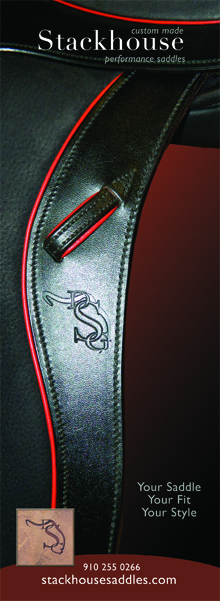Search the Site
Guest Blog post # 68: "You May, You Must!" by Bill Woods
There's a time (we hope) in everyone's riding where a transformation takes place. It's when you start to find your "voice" and begin to exercise it. Before this can happen, riders struggle through some predictable stages. Typically, even while working on their own, their heads are filled with the scolding words (not even intentionally directed at them) by their teacher reminding them of their assorted malfeasances and inadequacies. When they get past this stage and their confidence grows, they begin to have a “voice” –but it’s usually not their own. Whether they’re actors, athletes, teachers, or whatever, a neophyte begins (consciously or not) to mimicking an expert they’re familiar with. Better to ride with SOME opinion even if it’s not internally generated.
It's a real joy to see a longtime student rise beyond all this and be seen making actual decisions that solve things in real time. I love to congratulate someone in a lesson with “that was a GOOD move!” It can be a long road to that point. If we agree that the learning process includes a lot of Trial and Error and an occasional Trial and Success, being brave enough to make an active intervention—even if you might be wrong—is an important step along the way. Doing SOMETHING beats passivity.
Once riders get to the show ring that advice still holds true. "Ride the horse not the test (or the lesson figures)" ought to be etched in every rider's mind. Movements count but themes are paramount: suppleness, connection, straightness, power among others. These things don't happen by themselves! If you get over-focused on making a leg yield happen and forget those themes, you’ve missed the whole point.
A student recently confided that she felt she rode actively at home, but at a competition, she knew she always just tried to smooth things out. Two things come to mind: Within the bounds of decorum judges would much rather see you recognize a problem and deal with, not sail blithely along as though you haven't noticed the left wing falling off. I personally feel that I am fairly proactive in the show ring, and I have never had a judge comment that I had done too much in the arena.
Second, if you normally school in a problem solving, interactive way at home, your horse won’t be shocked that you broke some perceived compact of benign neglect if you do more than hold your breath and pray when you ride in public.
Major Lindgren always reminded us that the exercises—his reprises—of themselves wouldn’t school the horse. You had to be sure to choose the right ones which speak to the issue at hand (not relevant in competition where the patterns and figures are predetermined) AND you have to perform them correctly invoking all the relevant themes. Only then will the exercises school the horse and please the judge.






